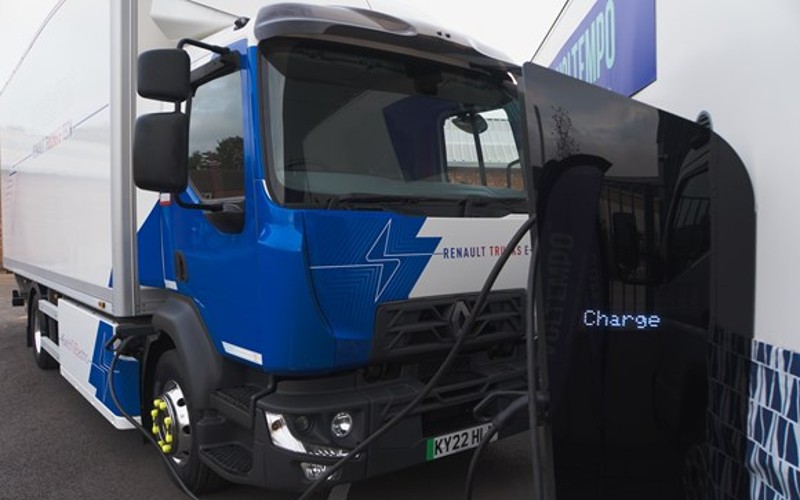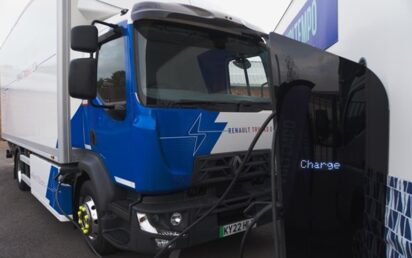More zero emission lorries are set to drive on UK roads thanks to a £200 million boost to decarbonise freight vehicles, drive innovation and create new jobs.
With heavy goods vehicles alone contributing 20% to all transport emissions across the UK, the government funding will be invested across four green projects to roll out up to 370 zero emission HGVs and help set road freight on the path towards net zero, driving innovation and creating new jobs.
Delivered in partnership with Innovate UK, the investment from the zero emission HGV and infrastructure demonstrator programme will also deliver around 57 refuelling and electric charging sites to help the haulage sector decarbonise.
Roads Minister Richard Holden visited Voltempo in Birmingham yesterday, one of the recipients, whose eFREIGHT 2030 project is set to create up to 200 new jobs by 2030 and provide Birmingham with one of the UK’s first electric vehicle charging hubs dedicated to HGVs.
The funding will help popular grocery companies such as Sainsbury’s and Marks and Spencer lower their transport emissions while protecting them from rising delivery costs associated with changing petrol and diesel prices. This could help prevent price hikes across supermarkets, allowing people to save money on food and groceries to help with the cost of living.
TransportTech 50 – UK’s most innovative transport technology creators for 2022
“Freight and logistics are the beating heart of our economy and it is only right that we celebrate the sector so that it gets the recognition and support it deserves,” said Roads Minister Richard Holden.
“From boosting zero emission tech across freight to attracting the future generation of talent to the industry, we are working hard to drive innovation, create jobs and grow the economy by building a brighter, more innovative future for one of our most crucial industries.”
‘It’s time for government to get behind startups & scaleups’
This week has also seen the publication of the zero-emission vehicle mandate, which sets out the percentage of new zero emission cars and vans that manufacturers will be required to produce each year up to 2030 as part of a new pragmatic and realistic pathway to 100% zero emission vehicle sales from 2035.
An additional £2.4m has also been unlocked through the second round of the Freight Innovation Fund. As part of the fund, the FIF Accelerator – open for applications from today – will help up to 10 SMEs develop new ways to make freight greener, more efficient, and more resilient.
Nicola Yates OBE, CEO at Connected Places Catapult said: “Freight is a crucial sector for the UK and contributes around £127 billion to the economy, but it is not without its challenges. Reducing the sector’s carbon footprint, cutting journey times and easing traffic congestion are key areas of focus, alongside the development of efficient and better-connected logistics hubs.
“We are proud to be continuing our work with the Department for Transport as we open applications for the second cohort of the Freight Innovation Fund Accelerator programme. The companies chosen will benefit from access to funding and expert support to develop their technologies and innovations that promise to make the freight sector grow, become greener and work smarter.”

